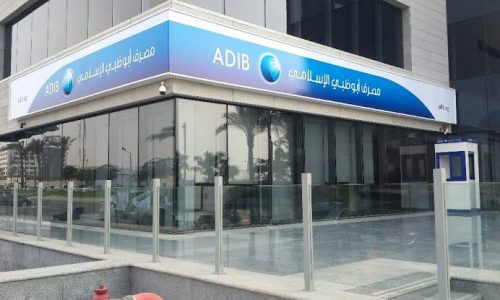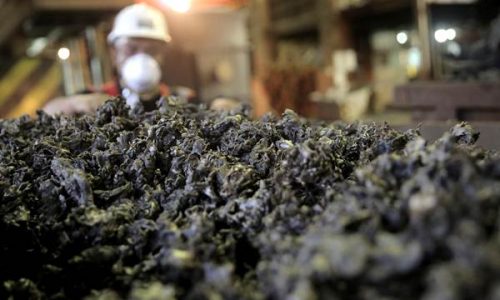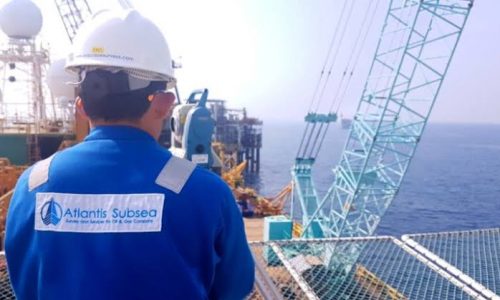The massive amount of illegal fishing poses a genuine threat to the sovereignty of the Indo-Pacific countries, the majority of which have coastlines, and the fisheries sector, which is the source of their economy and food security. This encourages these countries to combat illegal fishing in a variety of ways.
Due to these countries’ dependence on fisheries, there is a consensus among the Indo-Pacific countries to curb illegal activities through multilateral agreements, the switch to aquaculture facilities, conventions, and information campaigns. Illegal fishing threatens the food security of these countries.
The Indonesia Ocean Justice Initiative (IOJI), an independent think tank in sustainable marine life cooperation, is of common interest since Indonesia is highly dependent on fish for food security. So, this is indeed a common interest, and all countries should work together to protect the marine environment, including the EEZ (exclusive economic zone).
Rich in fishery resources
Dharma Agastia, a professor of international relations at Indonesia’s President University, said: “Most Indo-Pacific countries have historically been maritime states. This applies to countries like Indonesia, Malaysia, the Philippines, Vietnam, and China. They are all dependent on fish as a primary protein source.”
According to the Coral Triangle Initiative on Coral Reefs, Fisheries, and Food Security (CTI), there is a broad scientific consensus that the Coral Triangle represents a global epicenter for marine biodiversity because it harbors 76% of all known coral species while occupying only 1.6% of the earth’s ocean and 53% of its coral reefs. The Coral Triangle also has the most significant area of mangrove forests, which serve as nursery grounds for tuna and other valuable fish species.
CTI was founded in 2007 with a commitment to supporting people-centered conservation of biodiversity, sustainable development, poverty reduction and equitable sharing of benefits. Its partners are Indonesia, Malaysia, Papua New Guinea, the Philippines, the Solomon Islands and Timor Leste.
The countries of these areas recognize the importance of the region. The resources that spawn in these areas are at risk from unsustainable fishing practices, coastal and climate changes that affect the coral areas and marine pollution.
Coordination issue among states
According to Agastia, there is a coordination issue. States do not have an avenue to coordinate their intentions and interests. The states agreed that one would suffer if one were overfished. As a result of this consensus, various multilateral solutions were developed to combat illegal fishing. Multiple agreements are both binding and non-binding, soft law and complicated law.
The United Nations Convention on the Law of the Sea (UNCLOS), which became legally binding in 1982, clearly outlines the rights and responsibilities of states regarding marine and fishery resources.
In 1995, the Fish Stock Agreement was replaced by the Regional Fishery Management Organization (RFMO) and the United Nations Food and Agriculture Organization (FAO).
A 1982 UNCLOS binding agreement has two outlines: “First, which falls within a nation’s sovereignty, and second, outside of it.” What is outside of this includes the Exclusive Economic Zones. The previously mentioned, when it reaches 12 miles above that, the 12-mile sovereignty takes effect.
FAO issued a non-binding agreement titled IPOA-IUU (International Plan of Action Illegal, Unreported and Unregulated Fishing), which specifies the state’s obligations concerning illegal fishing. Furthermore, the CCRF Code of Conduct for Responsible Fisheries is non-binding.
A multilateral solution to the complex law is possible through cooperation with Interpol. In some cases, violations are committed in other countries but are then imported into the EEZ of our country. Interpol informed us that illegal fishing vessels had entered our country’s Exclusive Economic Zone.
“We inspected in cooperation with Interpol and were able to bring the vessel to PSDKP in 2019. As part of Task Force 115, a Multinational Investigation Team, which consisted of several investigators, was formed at Interpol. Furthermore, the Port State Measures Agreement (PSMA) was formulated due to the absence of a high seas regime, as no nation owns the high seas,” Agastia added.
Danger of overfishing
The prevention of overfishing can also be found in aquaculture, which is an effective way to reduce fishing, increase fish supply, and create jobs.
Agastia stated: “But the ecological benefits are the primary reason it is regarded as a viable option for aquaculture.
In contrast, IOJI’s Jeremiah observes that although it is lucrative, “until now, there has been no such thing.”
However, some guidelines can be used, such as UNCLOS. UNCLOS may be regarded as a constitution of the law of the sea. A country that wishes to establish an aquaculture industry must consider environmental protection because UNCLOS is obligated to protect the environment. It cannot specify an aquaculture industry and destroy the environment.
Jeremiah noted that these countries have sovereignty, but they are also responsible for observing environmental standards. However, the role of the multinational effort is essentially one of knowledge-sharing as part of their development, which eventually promotes aquaculture. NGOs also encourage the government to adopt sustainable fishing methods.
The state has established a maximum sustainable yield through a global catch based on predefined quotas on a national scale. A calculation should be found on the principle of sustainability and should not be arbitrary. “However, not all of these are successful in implementation. For example, in our EEZ, Vietnam is already overfished, which is why they often enter it,” Jeremiah said.
This is a dangerous situation for Indonesia’s fishery. There is some overfishing, especially in the Aru and Arafura Seas. “Monitoring issues remain the number one impediment to sustainable fish management. Meanwhile, countries should have the political will, especially countries such as China, Panama, and Vietnam,” Jeremiah said.
Using technology to prevent illegal fishing
The use of satellites is becoming more prevalent as technology develops. The RFMO also uses technology in the form of a Vessel Monitoring System (VMS). The VMS provides a direct monitoring capability of shipping. Capturing data is a costly process. As a result, port states can take part in reviewing its implementation. Thus, illegal fishing vessels may be reduced significantly.
In one sense, information campaigns are an effective tool to combat illegal fishing and promote food security. Multilateral solutions like the European Union have a unique standard system for dealing with such actions.
The EU uses a yellow card and red card system. This can be used as a benchmark to prevent ships that have already committed violations from improving their performance. The country that owns the vessel will be given time to rectify the situation. However, if they fail to follow the rules, they will be given a red card. A red card prohibits them from entering Europe.
“This is what happened to Thailand in 2014. It was reported in the media about the rise in illegal fishing and human trafficking in their area. After receiving a yellow card, Thailand was finally given a yellow card which devastated the fishing industry,” Jeremiah explained.
“Ultimately, the state must improve its system. It must consider the sustainability of its fish stocks and the operation of its flag vessels in its EEZ,” he added.







